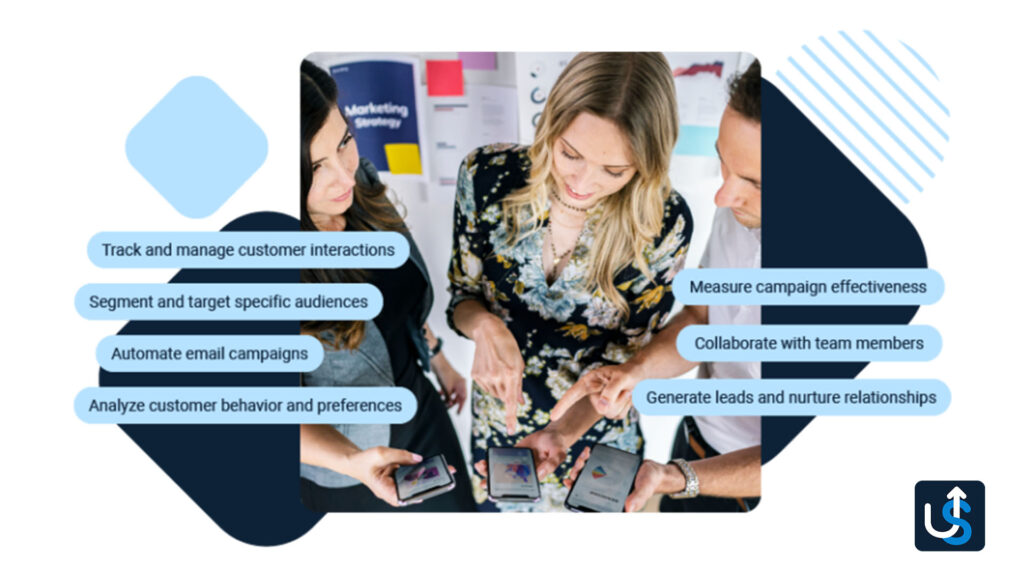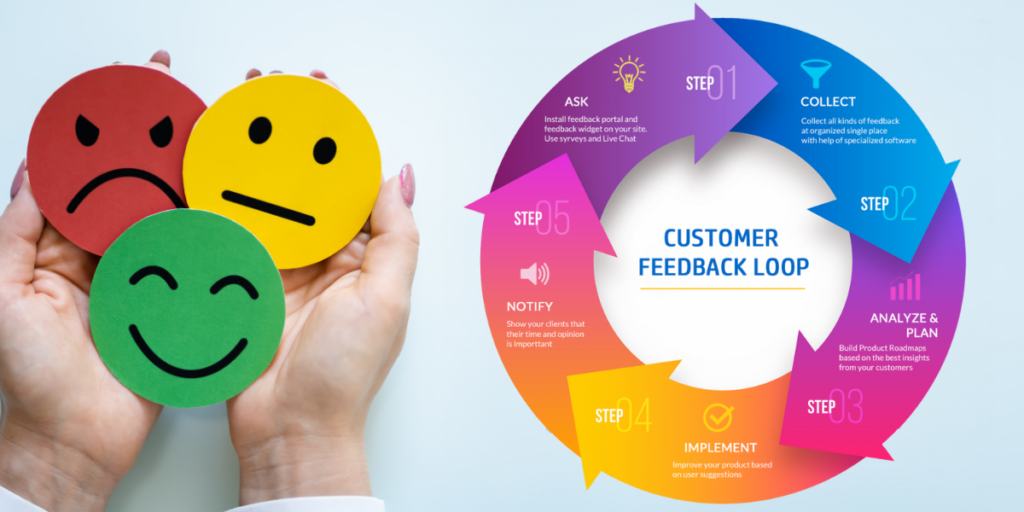
Content marketing has become the backbone of any successful marketing strategy in today’s hyper-connected digital landscape. It’s a powerful tool for building brand awareness, driving engagement, and nurturing leads. However, managing and optimizing content marketing campaigns can be complex, especially as your customer base grows. This is where Customer Relationship Management (CRM) systems come into play. CRM can revolutionize your content marketing efforts when used effectively, leading to improved customer engagement, higher conversions, and better ROI. This blog post will explore five ways to use CRM to enhance your content marketing strategy.

One of the fundamental principles of effective content marketing is delivering the right message to the right audience at the right time. CRM systems excel at helping you segment your audience based on various criteria, such as demographics, behavior, and purchase history. Using CRM data, you can create highly targeted and personalized content for different customer segments.

Increased Engagement: Personalized content resonates with your audience, leading to higher click-through rates and longer time spent on your website.
Improved Conversions: When your content speaks directly to customers’ needs and preferences, they will likely take the desired action, such as purchasing or signing up for your newsletter.
Enhanced Customer Loyalty: Personalization makes customers feel valued, fostering stronger relationships and loyalty.
Integrate your CRM system with your content management platform to implement segmentation effectively. This integration enables you to automate content delivery to specific segments, ensuring that each customer receives content tailored to their interests and stage in the buying journey.
Successful content marketing isn’t just about attracting new leads; it’s also about nurturing them through the sales funnel until they become paying customers. CRM systems enable you to create automated workflows that send relevant content to leads at different stages of the buyer’s journey.

Consistent Follow-up: Automated workflows ensure leads receive timely and relevant content, keeping your brand top-of-mind.
Saves Time and Resources: You can nurture leads at scale without manually sending emails or communications.
Data-Driven Decisions: CRM data allows you to track how leads engage with your content, helping you refine your strategies for better results.
For example, suppose a lead downloads a whitepaper on your website. In that case, you can set up an automated workflow that sends them a series of related articles, case studies, or product demos. Over time, this consistent nurturing can turn a lead into a loyal customer.
Content marketing involves a continuous cycle of creating, distributing, and analyzing content. CRM systems can assist in this process by providing insights into customer preferences and behavior, helping you tailor your content strategy accordingly.

Data-Driven Content: CRM data can highlight which topics and formats resonate most with your audience, allowing you to focus your content efforts on what works.
Improved SEO: CRM data can also help you identify keywords and phrases that your audience frequently uses, aiding in SEO optimization.
Content Calendar Management: CRM systems can assist in planning and scheduling content releases to maintain a consistent online presence.
Integrating your CRM with your content management system allows you to streamline content creation and distribution, ensuring that your content aligns with your audience’s interests and needs.
One of the significant advantages of using CRM in content marketing is the ability to track and measure your content campaigns’ return on investment (ROI). CRM systems provide valuable data on customer interactions, enabling you to connect content consumption to lead generation and conversion.

Data-Backed Decisions: Understanding which content drives conversions allows you to allocate resources more effectively.
Identifying High-Performing Channels: CRM data can reveal which marketing channels are most effective in converting leads, helping you optimize your marketing mix.
Improved Budget Allocation: Accurate ROI data allows you to allocate your budget to the most profitable content marketing initiatives.
To track ROI effectively, set up conversion tracking within your CRM system. This will enable you to attribute specific content pieces to lead generation and sales, giving you a clear picture of the content that delivers the highest return on your investment.
Content marketing is a dynamic field that requires constant adaptation to changing customer preferences and industry trends. CRM systems facilitate a feedback loop by collecting and analyzing customer feedback and behavior data, helping you make informed decisions to enhance your content strategy.

Continuous Improvement: Regular customer feedback allows you to refine your content to meet their needs better.
Stay Competitive: Staying updated with customer preferences and industry trends helps you stay ahead of your competition.
Enhanced Customer Satisfaction: By addressing customer feedback, you show that you value their opinions and are committed to delivering what they want.
To establish an effective feedback loop, leverage CRM data to gather customer feedback through surveys, reviews, and social media interactions. Analyze this data to identify areas for improvement in your content marketing strategy.
In conclusion, a well-implemented CRM system can be a game-changer for your content marketing efforts. It empowers you to segment your audience for personalized content, automate lead nurturing, optimize your content creation, track ROI, and continuously enhance your content based on feedback. By harnessing the power of CRM, you can supercharge your content marketing strategy, drive engagement, increase conversions, and, ultimately, boost your ROI. Take this opportunity to take your content marketing to the next level. Start integrating CRM into your content marketing strategy today!

Q1: What is CRM, and why is it essential for content marketing?
CRM, or Customer Relationship Management, is a technology and strategy for managing and analyzing interactions with customers and potential customers. It’s essential for content marketing because it allows you to segment your audience, automate lead nurturing, track ROI, and gather valuable feedback, all of which enhance the effectiveness of your content marketing efforts.
Q2: How can CRM help with personalizing content?
CRM systems enable you to collect and analyze customer data, such as demographics, behavior, and purchase history. With this information, you can create highly personalized content that speaks directly to their needs and preferences, increasing engagement and conversions.
Q3: What are automated workflows in content marketing, and why are they beneficial?
Automated workflows in content marketing are sequences of computerized actions triggered by specific user interactions or events. They are helpful because they ensure consistent follow-up with leads, save time and resources, and allow you to provide timely and relevant content to prospects as they progress through the buyer’s journey.
Q4: How can CRM help with content creation and optimization?
CRM data provides insights into customer preferences and behavior, allowing you to tailor your content strategy. It can highlight which topics and formats resonate with your audience, aid in SEO optimization, and assist in managing your content calendar effectively.

The Real Benefits of Contact Management with CRM for Collecting Customer Data Managing and leveraging customer information has become a foundational aspect of success…
Can a CRM Really Automate My Sales Follow-Ups and Boost My Small Business Revenue? Small businesses face increasing pressure to maintain consistent communication with…
Best CRM Software for Sales Prospecting: Transform Your Sales Prospecting Struggling to turn cold leads into paying customers? You’re not alone. In today’s competitive…